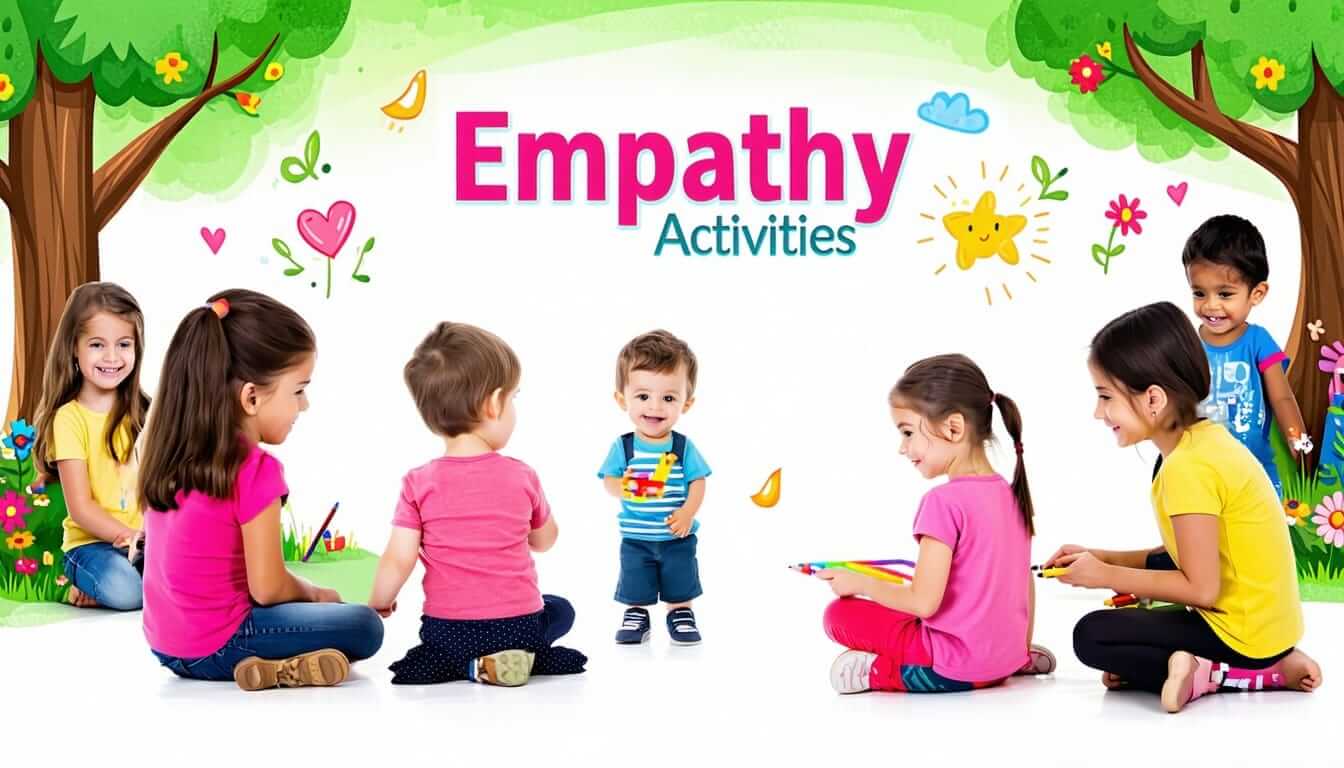Empathy is like a secret ingredient that boosts your child’s emotional well-being and sense of respect. If you’re looking for empathy exercises for children to help them build strong relationships and healthier communication, you’re in the right place. Below, you’ll find a few simple strategies that fit naturally into your everyday routine. Stick around for a call to action at the end, so you can take your child’s journey one step further.
Introduce empathy early
Start small by naming emotions. When you notice your child looking upset, you might say, “You seem a little frustrated right now. Want to talk about it?” By putting words to their feelings, you’re gently guiding them to recognize and express emotions. Over time, they’ll grow more comfortable sharing how they feel, and they’ll be better at identifying the emotions of others too.
- Talk about feelings when reading bedtime stories. Ask, “How do you think this character feels right now?”
- Use simple prompts like, “Tell me something that made you smile today,” to boost awareness of positive emotions.
Practice empathy exercises
Interactive games are a fun way to deepen emotional connection. You can turn empathy-building into playful moments that stick with your child for years.
- Role-swap skits: Have your child pretend to be you while you act as them. Afterward, discuss what it felt like to be in each other’s shoes.
- Emotion charades: Write down different feelings (happy, sad, proud) on small slips of paper, then draw and act them out. Talk about when your child has felt these emotions before.
- Team storytelling: Craft a short story together. Let your child describe how each character might feel in different situations, such as losing a toy or making a new friend.
Encourage daily reflection
A quick daily chat can go a long way toward making empathy a routine. Ask open-ended questions, and let your child guide the conversation. Curious about a simple plan?
- Create a “talk jar” where you place questions or scenarios for reflection. Pull one out each evening, and let your child share thoughts about how someone in the scenario might feel.
- Keep a small “feelings journal” where your child jots down one uplifting thing they did for someone else each day. It’s a nice reminder that empathy can be shown through kind actions.
Add respect through martial arts
Empathy and respect often go hand in hand, and a structured activity like martial arts can bring them both to life. At Mastery Martial Arts Troy, instructors teach discipline, listening skills, and thoughtfulness, all of which support empathy. If your child needs a confidence boost while learning to value others, consider signing them up.
You can even try a free 2-week trial at www.KidsMartialArtsTroy.com. It’s a great way to see firsthand how focusing on respect can strengthen empathy in daily life.
Wrap it up
By naming emotions, playing empathy-inspired games, and encouraging daily reflection, you’ll help your child become more aware of others’ feelings and more considerate overall. If you’re after a hands-on approach to respect and leadership skills, martial arts is worth exploring. Remember, fostering empathy doesn’t have to be complicated. It just takes small steps, repeated often, to guide your child toward a kinder heart and a brighter future.





0 Comments